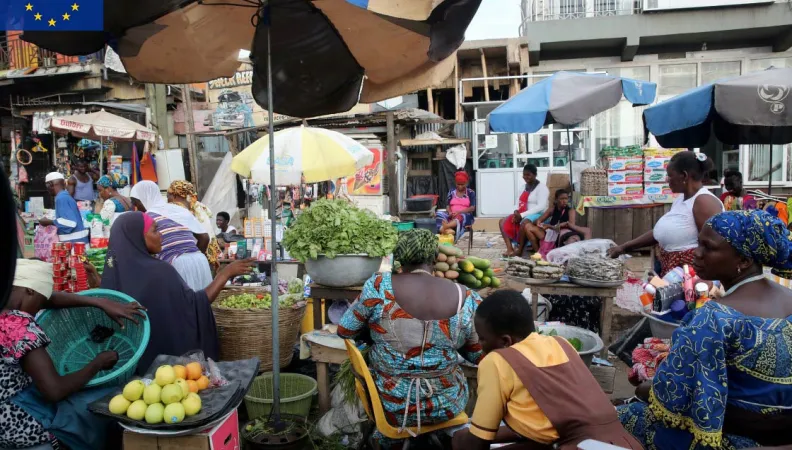Share the page
The dynamics and interactions of income inequality and inequality of opportunity in Ghana

-
Project start date
-
2018Status
Completed
-
Project end date
-
2020
-
AFD financing amount
-
130 000
-
Country and region
-
Location
-
Ghana
-
Research program
Led by the University of Ghana, this research project focuses on inequalities in Ghana, where they remain at important levels although this country has experienced rapid economic growth and significant reduction in poverty levels in recent times. Beyond a diagnostic study on inequality, this project analyses the changing dynamics in this country from a spatial, gender and ethnicity perspective. It also includes a focus on the relationship between economic inequalities and inequalities in education opportunities.
Contexte
Ghana has experienced rapid economic growth and significant reduction in poverty levels in recent times. However, the reduction in poverty has not translated into a reduction in inequality. Coloumbe and Wodon (2007), and also Cooke et al. (2016) recognise the spatial inequality that exists in the country, manifested particularly in the differences in income levels between the northern and southern parts of Ghana. Evidence by Oduro et al. (2011) and FAO (2012) also point to persistent gender inequalities relating to access to and control of assets as well as access to secured and less vulnerable employment.
According to Corak (2013), economic inequalities limit opportunities for economic and social advancement of the next generation as increased inequalities often alter the opportunities and the incentives for households to invest in the human capital development of their children.
This project is part of the first phase of the Research Facility on Inequalities, coordinated by AFD and funded by the European Commission's Directorate-General for International Partnerships over the 2017-2020 period. The first phase of the Facility has led to the conduct of 22 research projects and the publication of around 100 research papers and policy briefs.
Objectif
This project will draw on and consolidate this evidence-base and then fill some important, policy-relevant gaps that remain. By design, the research program outlined below seeks to address distributional issues in both the bottom half and the top of the distribution. The work program recognises from the outset that there are several dimensions of human development and wellbeing, and progress in some measures might be accompanied by deterioration in others. It recognises that economic growth does not necessarily lead to equitable outcomes – both poverty and inequality have self-reinforcing characteristics that are hard to counter.
Méthode
The research project will be developed across three work streams:
- The diagnostic study on inequality in Ghana will in essence aim to produce a report on inequality in Ghana. It will explore the census data and include an analysis of spatial inequality using the most recent poverty maps of Ghana. In view of this the team will be working with the Ghana Statistical Service to produce this report. This report will be based on a common framework to be developed by the hub of the ACEIR network.
- The researchers will take advantage of the two rounds of the Ghana Socioeconomic Panel Survey (GSPS) which are a result of collaboration between Yale University and ISSER. Using this data they intend to study how economic inequality has changed in Ghana over the period 2010 to 2014 (Wave 1 & 2 respectively) and what explains the changes. In particular, they will try to analyse the changing dynamics from a spatial, gender (of household head and at the individual levels) and ethnicity perspective.
- A paper on is the relationship between economic inequalities and inequalities in education opportunities in the context of Ghana. Even though enrolment rates in Ghana are generally very high, the inputs for good educational outcomes, such as the quality of school infrastructure, books and other educational materials are not equally available to pupils due to economic inequality. This in turn will have implications for educational outcomes and consequently future welfare status of these pupils as Mayer (2010) and Corak (2013) suggest. The researchers involved in this project hope to use this study to contribute to a better understanding of the nature and extent of this relationship. The study will use the two waves of the Ghana Socioeconomic Panel Survey (GSPS).
Results
Find the presentation of the research paper "Exploring the dynamics of micro- level consumption inequality in Ghana" by Nkechi Owoo (University of Ghana, ACEIR) during the sixth webinar of the Research Facility on Inequalities:
You may find the research papers and the Inequality Diagnostics here:
- Understanding the relationship between consumption inequality, inequality of opportunity and education outcomes in Ghana
- Exploring the dynamics of micro-level consumption inequality in Ghana
- Inequality Diagnostics for Ghana
Contact:
Anda David, Research Officer, AFD
